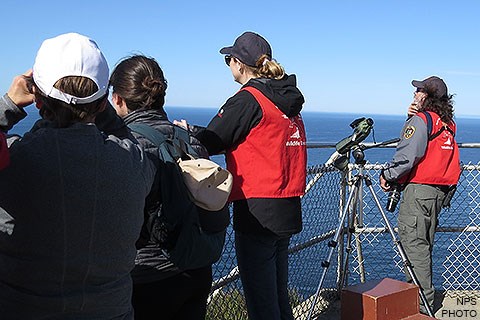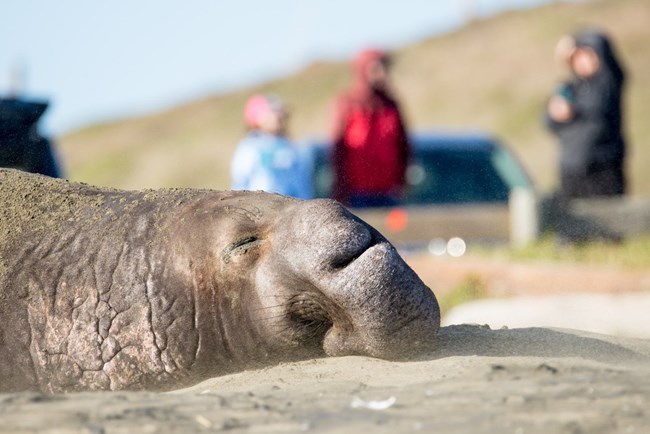
NPS Photo/S. Frisbie 
Overview The Winter Wildlife Docent promotes awareness and protection of northern elephant seals, gray whales, and other marine life by helping visitors view, understand, and appreciate these species; helps visitors understand the ongoing management and research issues relating to northern elephant seals in Point Reyes National Seashore; and provides general park information and assistance to visitors. Duties
Knowledge/Skills/Experience DesiredDocents must possess good oral communication skills with a diversity of people and be able to work independently. A desire to learn about the park and specifically the elephant seals and whales which are the focus of the program is necessary. Four days of training in the fall are required for new docents. Seven shifts of approximately 7 hours are required between mid-December and the end of April. Docents will be required to provide services in a variety of weather conditions including tolerating sun, wind, fog, and cold. While much of the work with the public involves standing and walking, appropriate accommodations can be made. Schedule and Time CommitmentThe Winter Wildlife Docent Program runs daily from mid-December to mid-April. The 2025-2026 season will run from Friday, December 19, 2025 through Sunday, April 26, 2026. The daily docent shift is generally from 9:30 am to 4:30 pm, and docents are expected to sign up for a minimum of seven shifts per season. 
NPS Photo/J. Weinberg TrainingDocents are required to attend training as follows: Benefits to the VolunteerThe Winter Wildlife Docent gains personal enrichment and experience working in a national park setting; training and education about northern elephant seals, gray whales and related park resources; satisfaction of promoting awareness and protection of northern elephant seals and gray whales; and satisfaction and experience in communicating with and helping park visitors while representing the National Park Service. Minimum AgeMinimum age is 16. Volunteers under 18 years of age must have a signed parental consent form. Please contact us (see below) for more information. AccommodationsHousing and camping/RV sites are unavailable. How to ApplyThe application period for the 2025-2026 season has closed. |
Last updated: September 16, 2025
